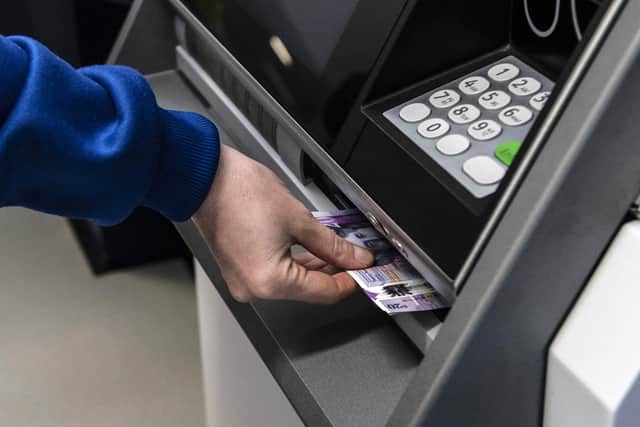How is inflation calculated? All you need to know about measurements after UK inflation rises to 9%
and live on Freeview channel 276
Official figures released on Wednesday have shown the cost of living crisis is continuing to squeeze UK residents with inflation up to 9% – the highest it has been in over 40 years.
This rise is calculated over a 12 month period and is up from 7% in March.
Advertisement
Hide AdAdvertisement
Hide AdBut what does this mean, and how are these numbers worked out?


At its simplest, inflation is an increase in the cost of everyday goods and services which households spend money on.
As a simplified example, if a loaf of bread cost £1 12 months ago, it now costs £1.09.
Within economics, it is expected for prices to rise over time, but any rapid rise in the speed of inflation can hit the public hard financially.
Advertisement
Hide AdAdvertisement
Hide AdThe major calculation of inflation is known as the Consumer Price Index, which measures the percentage change in the price of a series of goods and services.
These are weighted according to their perceived importance, with housing being given the most weight within the algorithm and communication services such as broadband and mobile phone contracts being given the least.
The prices are collected from a range of online and high street retailers, supermarkets and department stores where households shop in addition to government authorities when considering costs such as taxes, energy providers and estate agents.
What does rising levels of inflation mean for regular people?
Advertisement
Hide AdAdvertisement
Hide AdFor a while now, rising wages have not been able to keep up with the rising costs of services, meaning budgets will continue to be stretched.
The Consumer Price Index is not the sole indicator of the cost of living, rather offering a way to calculate inflation which is then used to calculate the cost of living.
What can I do to fight inflation?
There is very little households can do as they are already feeling the effects of the rise in the cost of living. The Bank of England may look to make borrowing more expensive to encourage the public to save money.
